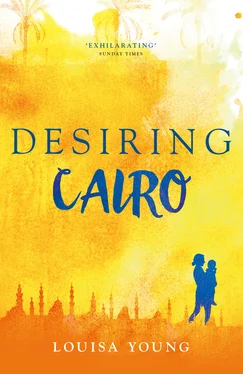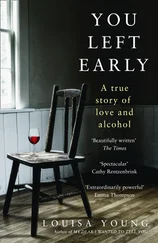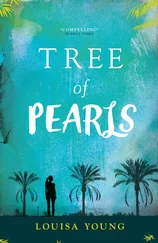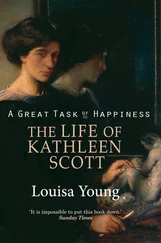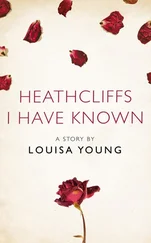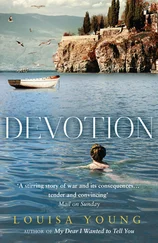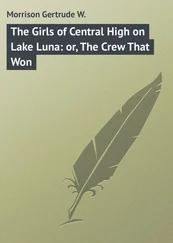What else? I try to lead a quiet life because I think that is best for Lily. Every now and then I yearn for Egypt, and for love, and for the beautiful clear sense of being right in my skin, right in the world, that I used to get when I was dancing. But though I am a bust-up dancer, and know what I have lost, I don’t like to think of myself as broken. So I carry on as normal: working, taking Lily to school, seeing friends. Lily is quite enough joy and glory, so I don’t resent my stationary existence. I love and cherish it. It seems safe. Or did, until Jim came threatening it, and Ben Cooper the Bent Copper started blackmailing me and forcing me into the path of Eddie Bates, bastard, gangster, criminal mastermind and sexual obsessive. I describe him lightly, because he is the most frightening thing I have ever known.
But that’s over. He’s in prison. It’s safe again.
I do keep a list of the men who I hope are not my child’s father: Eddie Bates, Ben Cooper, Harry. Not necessarily in that order.
And so that is me, and I still live up in the clouds in my top floor flat in Shepherds Bush, and on my doorstep holding out his arms and hands and calling me a name from long ago, the name of someone who I certainly am not any more, stands – oh my God, it’s one of Abu Nil’s boys. It can’t be the big one, Sa’id. Then … it must be Hakim. Hakim el Araby. Last seen in Luxor in 1987. Hakim, the sweet little scamp from the alabaster family at Thebes.
TWO Contents Cover Title Page DESIRING CAIRO The Angeline Gower Trilogy Louisa Young Copyright Praise Dedication Epigraph ‘I do believe that, with all its drawbacks, Egypt is the most interesting and convenient country that a lady can travel over’ ELIOT WARBURTON, 1845 Introduction Chapter One: Hakim Chapter Two: Luxor Chapter Three: Talking about Gary Cooper Chapter Four: Hakim’s Business, Harry’s News Chapter Five: Next Chapter Six: Tell Mama Chapter Seven: Brighton Chapter Eight: Harry Cooks Dinner Chapter Nine: Sunday Night Chapter Ten: Sa’id Chapter Eleven: The Funeral Chapter Twelve: Dinner with Sa’id Chapter Thirteen: Tell Your Own Mama Chapter Fourteen: Chrissie, Get Out of My Bath Chapter Fifteen: Sunday Night Coming Down Again Chapter Sixteen: ‘You are dearer than my days, you are more beautiful than my dreams’ Chapter Seventeen: I Wish I Was in Egypt Chapter Eighteen: What Harry Knows Chapter Nineteen: The Madness Sets In Chapter Twenty: Cairo Chapter Twenty-One: Family Life Chapter Twenty-Two: Let’s Go to the Bank Chapter Twenty-Three: Give Me Your Hands Chapter Twenty-Four: Semiramis Chapter Twenty-Five: God, when he created the world, put a great sea between the Muslims and the Christians, ‘for a reason’ Chapter Twenty-Six: The End, and the Beginning Acknowledgements About the Author Also by Louisa Young About the Publisher
Luxor Contents Cover Title Page DESIRING CAIRO The Angeline Gower Trilogy Louisa Young Copyright Praise Dedication Epigraph ‘I do believe that, with all its drawbacks, Egypt is the most interesting and convenient country that a lady can travel over’ ELIOT WARBURTON, 1845 Introduction Chapter One: Hakim Chapter Two: Luxor Chapter Three: Talking about Gary Cooper Chapter Four: Hakim’s Business, Harry’s News Chapter Five: Next Chapter Six: Tell Mama Chapter Seven: Brighton Chapter Eight: Harry Cooks Dinner Chapter Nine: Sunday Night Chapter Ten: Sa’id Chapter Eleven: The Funeral Chapter Twelve: Dinner with Sa’id Chapter Thirteen: Tell Your Own Mama Chapter Fourteen: Chrissie, Get Out of My Bath Chapter Fifteen: Sunday Night Coming Down Again Chapter Sixteen: ‘You are dearer than my days, you are more beautiful than my dreams’ Chapter Seventeen: I Wish I Was in Egypt Chapter Eighteen: What Harry Knows Chapter Nineteen: The Madness Sets In Chapter Twenty: Cairo Chapter Twenty-One: Family Life Chapter Twenty-Two: Let’s Go to the Bank Chapter Twenty-Three: Give Me Your Hands Chapter Twenty-Four: Semiramis Chapter Twenty-Five: God, when he created the world, put a great sea between the Muslims and the Christians, ‘for a reason’ Chapter Twenty-Six: The End, and the Beginning Acknowledgements About the Author Also by Louisa Young About the Publisher
‘Hakim,’ I said.
‘Sister,’ he cried, and grinned at me and poured a flood of the beautiful language over me, the precise meaning of much of which passed me by, though the spirit was clear. He was delighted to see me, he was amazed to find me home, what a long time it had been, and how was my health, Alhamdulillah, praise to God, and that of my father and mother, and so on, and so forth.
I invited him to step inside and take coffee. For a moment I wondered if he was old enough to drink coffee. He must have been ten when I saw him last, and here he was, grown up. Sort of. He refused the entrance and the coffee twice and I almost laughed. Here he is with his suitcase, straight from the airport, so recently left Egypt that I can smell the aroma of apple tobacco on his clothes, and his courtesy will hardly let him admit that he is here, and presumably for a reason.
‘Come in, come in,’ I said, and pulled his suitcase inside the door and led him to the kitchen where I found myself making ahwa turky – coffee stewed up the Egyptian way in my old tanaka – instead of a nice pot of espresso as I normally do. Ahwa turky made with Lavazza – it wasn’t bad, actually.
He sat gingerly at my kitchen table and, as you do, looked around, taking stock of me and my life. I had no idea what he made of it. I hadn’t seen him since 1987, in Luxor; he’d been a kid, drawing pictures in the dust, playing football in the street, chasing scorpions, escaping his big brother. There were plans to send them to school in Cairo, and they didn’t want to go. Presumably he had gone – he looked provincial, but not that provincial. More Cairene than Luxori. If I could still pick up those nice distinctions.
His father, now, his father I knew. Well, used to know, when I was there. It’s a bore, this language thing. I could find my way round a newspaper or a novel in Arabic, with a dictionary; I could converse and grow fond and build a friendship, but maintain it? Write? Correspond? No. So there was a man, Ismail el Araby, known in the village way as Abu Sa’id, father of Sa’id. I used to call him Abu Nil, for some reason. Father of the Nile. He was one of the kindest I ever knew, with a face as brown and smooth and fissured as a kabanos, and a sneaky sense of humour, and two handsome sons, and secrets, who I liked enormously, but the friendship died. Killed by circumstance and illiteracy. My illiteracy. I had put it down as one of those magically unlikely friendships, of its time and of its place, like a Bob Dylan ballad, complete.
And now here’s his boy, here in my flat.
There’s no telling what my flat would mean to Hakim. My piles of fruit and laundry and newspapers, Lily’s dolls on the sofa all seated in a row reading picture books, the late roses from Mum’s garden dropping petals all over everywhere, the bag of empties waiting to be taken to the bottle bank. Would he be thinking me profligate, sluttish, what? I had a sudden and sharp resurgence of a feeling I often had in Cairo; an awareness of incomprehension, of the impossibility of complete comprehension: ‘I do not know what all these people know; I have not learned what they all learned, they share something that I cannot share.’ There were times when I hadn’t a clue. Everybody laughing, and me bemused. Everybody worried, and I could not, could not, using all my experience and intelligence and imagination, work out why. Just humans, bred in different habits. Before and after the marvels of the individual, over and under all our common humanity, there is this thing. We are different. It delighted me far more often than it alarmed me, even in a world so very … different, shall we say … for women. But it was always there. I was a foreigner, I could not truly understand. I was not at home. And for a moment, watching Hakim looking at my kitchen, I felt a sudden cold flurry of not being at home.
Читать дальше
